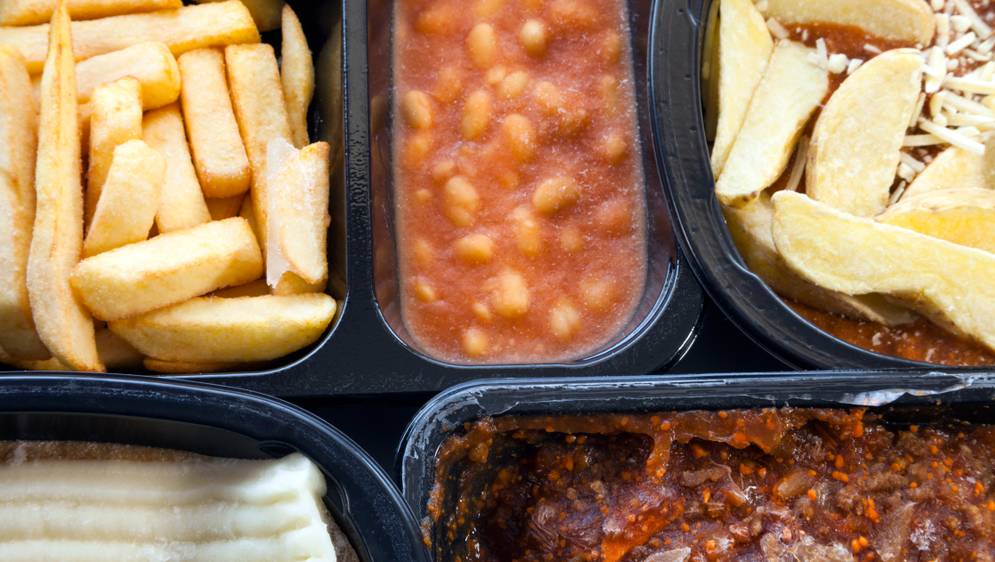news, latest-news, ask fuzzy, western diet, what is a western diet, processed foods
The last year has been stressful for many and may have led more people to “stress eat” and potentially adhere to a so-called Western dietary pattern. But, why does the Western diet have a bad reputation? The Western diet can be characterised as being high in ultra-processed foods which are industrially processed, containing additional ingredients and additives. This, of course, includes junk foods but can include muesli bars, some cereals and meat by-products. Overall, the consumption of ultra-processed foods has become much of the focus when it comes to negative health outcomes from the Western diet. Research has shown that a diet high in processed meat, refined carbohydrates (breakfast cereals, pastries, white rice), sweets, sugar-sweetened beverages, fried foods and anything with an extensive list of food additives can contribute to a multitude of adverse health outcomes. This includes depression, obesity, diabetes and cardiovascular disease, particularly if consumed in combination for long periods. The production and consumption of processed foods has rapidly increased over the years, however food processing itself is not a health issue. Most foods are processed (washed, chopped, canned or frozen) and/or preserved (curing of meats, cheeses, drying or roasting methods). This ensures safe and accessible food that can be packaged, marketed and distributed to the consumer easily. It also offers a continuous food supply of seasonal produce, so it is available in some form throughout the year. The ingredients used in these products have been introduced and made in bulk, to imitate or enhance the sensory qualities of foods, potentially contributing to the likelihood of over consumption. Ultra-processed foods are convenient, hyper-palatable and have a long shelf life. However, they are nutritionally unbalanced and in an Australian study of over 12,000 people, were shown to contribute to over 40 per cent of total energy intake. READ MORE: Ask Fuzzy: Do we need gas? Ask Fuzzy: Does the pitch of our voice matter? Ask Fuzzy: How does a Frisbee fly? Generally, the way to identify if a product is ultra-processed is to check to see if its list of ingredients is long, containing food substances you wouldn’t freely use in cooking including hydrolysed or soya protein, high fructose corn syrup, fruit juice concentrate, maltodextrin, dextrose and hydrogenated oil, among others. Another consideration is the increase in consumption of ultra-processed plant-based meat and dairy substitutes which are also increasing in Western countries. This means consuming more ‘plant-based foods’ for health benefits maybe potentially misleading. The key message is to consume a wide range of fresh fruit, vegetables, unprocessed grains, legumes and healthy fats – mainly extra virgin olive oil and nuts – while leaving the ultra-processed foods off the menu the majority of the time. Response by: Brittany Harriden, Nathan D’Cunha and A/Prof Nenad Naumovski, University of Canberra
/images/transform/v1/crop/frm/XBxJDq6WLub2UphQ8wEq23/1b1665e9-fc3f-4a48-addc-51ec155b68f0.jpg/r3_53_998_615_w1200_h678_fmax.jpg
The last year has been stressful for many and may have led more people to “stress eat” and potentially adhere to a so-called Western dietary pattern. But, why does the Western diet have a bad reputation?
The Western diet can be characterised as being high in ultra-processed foods which are industrially processed, containing additional ingredients and additives. This, of course, includes junk foods but can include muesli bars, some cereals and meat by-products. Overall, the consumption of ultra-processed foods has become much of the focus when it comes to negative health outcomes from the Western diet.
Research has shown that a diet high in processed meat, refined carbohydrates (breakfast cereals, pastries, white rice), sweets, sugar-sweetened beverages, fried foods and anything with an extensive list of food additives can contribute to a multitude of adverse health outcomes. This includes depression, obesity, diabetes and cardiovascular disease, particularly if consumed in combination for long periods.
The production and consumption of processed foods has rapidly increased over the years, however food processing itself is not a health issue. Most foods are processed (washed, chopped, canned or frozen) and/or preserved (curing of meats, cheeses, drying or roasting methods). This ensures safe and accessible food that can be packaged, marketed and distributed to the consumer easily. It also offers a continuous food supply of seasonal produce, so it is available in some form throughout the year.
The ingredients used in these products have been introduced and made in bulk, to imitate or enhance the sensory qualities of foods, potentially contributing to the likelihood of over consumption. Ultra-processed foods are convenient, hyper-palatable and have a long shelf life. However, they are nutritionally unbalanced and in an Australian study of over 12,000 people, were shown to contribute to over 40 per cent of total energy intake.
Generally, the way to identify if a product is ultra-processed is to check to see if its list of ingredients is long, containing food substances you wouldn’t freely use in cooking including hydrolysed or soya protein, high fructose corn syrup, fruit juice concentrate, maltodextrin, dextrose and hydrogenated oil, among others.
Another consideration is the increase in consumption of ultra-processed plant-based meat and dairy substitutes which are also increasing in Western countries. This means consuming more ‘plant-based foods’ for health benefits maybe potentially misleading.
The key message is to consume a wide range of fresh fruit, vegetables, unprocessed grains, legumes and healthy fats – mainly extra virgin olive oil and nuts – while leaving the ultra-processed foods off the menu the majority of the time.
Response by: Brittany Harriden, Nathan D’Cunha and A/Prof Nenad Naumovski, University of Canberra







